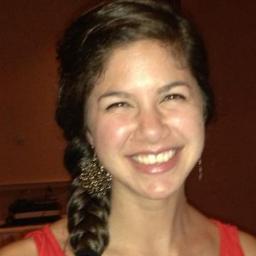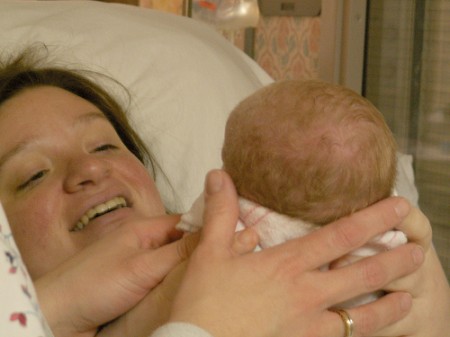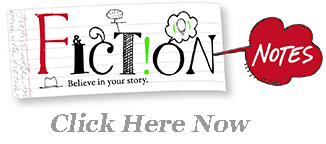In an effort to get to know our Oxford University Press staff better, we’re featuring interviews with our staff in different offices. Read on for our Q&A with Alyssa Bender, marketing coordinator for our religion and theology Academic/Trade books and Bibles in New York.
 When did you start working at OUP?
When did you start working at OUP?
July 2011.
What is the most important lesson you learned during your first year on the job?
Take notes on everything! From training sessions for programs to meetings where I had no idea what anyone was talking about, filling up my notebook (and constantly revisiting later) was my saving grace.
What’s the most surprising thing you’ve found about working at OUP?
How many books we come out with every year. Never could have guessed we publish the volume that we do.
What’s the least surprising?
While it surprised me at first, it really shouldn’t have—everyone here is so intelligent and talented. It’s likely that those are just the type of people who are drawn to work at university presses, but it’s still great to work with such smart people every day.
What drew you to work for OUP in the first place? What do you think about that now?
It was a job in publishing! Those are hard to come by when you’re first out of school. Luckily, it turned out to be an awesome job with a great team. Still is.
What’s the first thing you do when you get to work in the morning?
Open my inbox and sort the emails by priority.
What is your typical day like at OUP?
Lots of answering emails. Also, lots of meetings. In between emails and meetings, there’s creating marketing plans, pulling sales reports, gathering social media content, proofing newsletters and catalogs, updating website copy, submitting review copy requests, making flyers…the list goes on.
What is the strangest thing currently on or in your desk?
A 3D paper pear made out of note paper. A gift from my manager, who brought it back from her trip to Japan.

What’s the most enjoyable part of your job?
Seeing my efforts pay off when a book does really well.
What’s the most difficult part of your job?
Determining reprint quantities. No matter how much research you do, you can still be way off in your estimates. It’s one of the many aspects of my job that only gets easier the more experience you have doing it.
What is the most exciting project you have been part of while working at OUP?
Helping to launch the @OUPMusic Twitter, back when I still worked on the music team. It was really fun to be a part of the strategy conversations and learn what goes on behind the scenes of company Twitter accounts. It was also fun to be behind some of the tweets and interact with the followers.
Tell us about one of your proudest moments at work.
Pulling off a successful American Academy of Religion/Society for Biblical Literature conference this past November. As the team leader for the conference, I was responsible for organizing almost every detail about our presence there, from deciding the booth layout, to determining the books we would bring (and how many of each), to making sure enough people were present for set-up/tear down. It was my first AAR/SBL, and my first large meeting in general, and I was really happy with how it all turned out.
What will you be doing once you’ve completed this Q&A?
Cleaning my desk! So many piles of paper, bookmarked galleys, meeting notes, books, and folders everywhere!
Alyssa Bender joined Oxford University Press in 2011. She is currently a Marketing Coordinator for our religion and theology Academic/Trade books and Bibles in New York.
The post Catching up with Alyssa Bender appeared first on OUPblog.

Giving and receiving critiques on your writing is one of the most helpful and necessary parts of the process. I value my critique group beyond any other writing tools I have. They let me know what works and what doesn't, when something I thought was crystal clear is not, and when my characters are acting out of character. They offer encouragement and cheerleading.
Not only has constant critique made me a better writer, it has made me a more professional writer. When I receive notes from agents, editors, and other professionals, I am able to receive the notes with a professional calmness. I don't get defensive. I get revising.
I hope everyone who writes is able to find a group or a few trusted beta readers who can offer valuable critique, but I know that there are quite a few writers in our SCBWI region (Utah and southern Idaho) who may not even know any other writers in their community. Or perhaps they don't know how to get a group started. Or have never critiqued anyone else's work and feel inadequate.

That is why we started a region-wide event called The Great Critique. We give you the opportunity to meet with other children's writers in your area and critique away. On one day, August 9, we all meet throughout the region, helping each other become better writers (and illustrators--they get to participate as well!). During the summer, you'll receive excerpts from manuscripts by the others registered in your area. You'll read them, prepare comments, and then meet in August for live critiquing. And if you don't have a meeting close by, we offer an online location as well. This event is FREE, and we hope you take advantage of it.
In addition, if you wish to have a critique from a publishing house editor or an agent, you can register for that through our
web site. And for an extra bonus, you can get a professional query critique.
You'll find all the details on our
registration page. So there are no excuses. Sign up NOW. Registration is open until June 15.
by Neysa CM Jensen
your regional advisor for SCBWI
(I live in Boise, Idaho, but don't hold that against me.)
Those of you who follow my antics know I was at an all-day meeting for the Digital Public Library of America project on Tuesday. While I have vague ideas what I was doing there, I have to say that I was still surprised at how few other representatives of rural and/or digitally divided folks were there. You can see the invite list here. I felt lucky that many of my viewpoints were ably represented by Josie Parker from Ann Arbor Public Library, Tony Marx from New York Public Library and Molly Raphael incoming president of ALA. Also in attendance were some of my favorite free culture folks: Brewster Kahle from the Internet Archive, Chris Freeland from the Biodiversity Heritage Library and my friend Richard Nash who runs Cursor Books. I also got to sit right next to Steve Potash from OverDrive right when everyone wanted a piece of him. That said, you can read the list and I’m sure you only vaguely care who I had dinner with. The meeting took place using Chatham House Rules meaning that in the interests of people being able to speak freely, nothing people said would be directly attributed to them.
So, let’s talk about what actually got me out of bed early on a Tuesday morning and has had me all hoppitamoppita since then. I’m going to use the “more inside” thingdoo on WordPress for possibly the first time ever. This idea is so big and exciting it’s had me just … well it’s like the Christmas present you never open, which is always somehow exactly what you want. I’m not sure what this will turn into and I’m sure it won’t be exactly what I want, but I’m excited that there is a friendly accessible group of do-gooders [with some funding, and some history being able to actually do things] who wants to Get Started. I like the Berkman Center folks and the projects they do. Their ideas mesh with mine, about using whatever privilege and powers they have to try to make more stuff accessible to more people and solve problems using technology. It’s also nice to see people who use wikis and blogging in an actual systematic and institutionalized way. The DPLA wiki is pretty robust and yes I’ve even made a few edits.
First off, you can read the notes from the meeting here and I suggest also checking out what other media and blog people have said about this so far, both before and after the meeting. The basic nutshell issue is: none of the big institutions we have seem to be advancing the idea of making consolidated digital content available to Americans in usable and accessible ways. While we can all point to individual libraries doing this in interesting and often effective ways, there is no useful way to assemble the cultural content of our country in such a way that an average person could say “This is our stuff” and point to a thing. Of course librarians since the world began have attacked chaos wherever they’ve found it, but this project seems to me to be something different. This is, as they call it, a “big tent” approach to the idea of what a digital library might be or could be.
Of course I think a lot of people will point to the Library of Congress, the work being done by WhiteHouse.gov, the amazing miracle that is Google or other similar projects and say “Well how is it different from that?” and I think this is what this sort of meeting was supposed to get at. Different people came and did short presentations about different aspects of the problem, the topic was discussed, and each section was summed up in small bullet points. John Palfrey, whose book Born Digital has been on my “to read” pile for an embarassingly long time, was the gracious and kind host and
2 Comments on The Digital Public Library of America and you, and me, last added: 3/5/2011
 When did you start working at OUP?
When did you start working at OUP?




















Hoppitamoppita! It is fun to see you excited about something, especially something that I had looked at & thought “eh?” so far. Time for me to look again.
i really appreciate the write-up! i’m glad to see my earlier comments were addressed, or at least as far as anyone would want to address them so far: make the whole heritage available, check, expand on public library mission, check. thanks for being part of the good hands we’re in